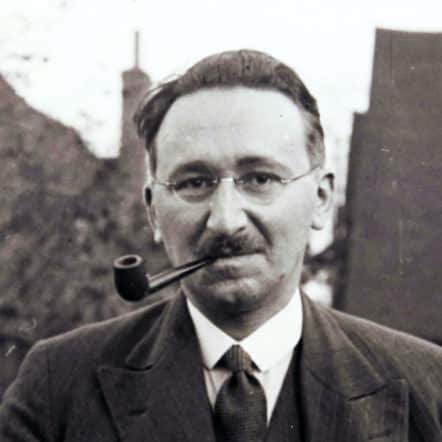Friedrich von Hayek (1899-1992) was a Hungarian Economist, Philosopher, and Nobel Prize winner best known for exposing the tragic flaws of Socialism, notably in The Road to Serfdom (1944). Five years later he published “The Intellectuals and Socialism” in The University of Chicago Law Review. That essay offered an unusual insight into the shaping of popular opinion at that time that is still valuable today. It also offers an answer to the question that is growing more puzzling day by day: How is it that Socialism continues to attract many people after it has been shown, again and again, to wreak disaster wherever it is tried?
Hayek began by pointing out that there is not one group of individuals rightly called “intellectual”; there are, instead, two groups. The first is experts, scholars, or original thinkers. The second is those who are not experts themselves but amateurs who are able to “readily talk and write” about a “wide range of subjects” in which they have no standing. In this group he included “journalists, teachers, ministers, lecturers, publicists, radio commentators, and writers of fiction.” Today, of course, the most dominant members of this group are TV anchors and commentators. (TV was in its infancy in 1949, so their number was few then.)
Hayek noted that these amateur intellectuals decided what information was publicized on virtually every subject, and “whenever they [had] discretion” gave a personal “slant to everything that pass[ed] through their hands.” As a result, what was reported to the public was not the “predominant views of the experts” but “the views of a minority” who shared the amateurs’ perspective. And that perspective was almost always progressive rather than conservative.
At the time Hayek wrote the essay, Socialism was a prominent focus of discussion, and progressives were its strongest supporters, in part because the information “the Western public [had] obtained about events in Central and Eastern Europe [had] almost inevitably been colored by a socialist bias.” The amateur intellectuals were affected by that bias, and it became part of “the picture of the world that [they] regard[ed] as modern or advanced.”
As a result, though socialists’ programs “suffer from inherent contradictions” and lead to unanticipated and disastrous results, “their program for change [was] the only one which [had] actually influenced the development of social institutions.”
A lot has happened since Hayek wrote that essay. Seventy years have come and gone. Television reached every home and became the principal source of information. The invention of the computer made the sharing of ideas much easier, and the creation of social media gave new generations of amateur intellectuals an expanded forum to share their progressive ideas. These developments explain why Socialism has continued to gain supporters despite its consistent record of failure in the former Soviet Union, Vietnam, Cuba, Spain, Greece, North Korea, Venezuela, and elsewhere.
In recent times Socialism has been dressed in new terminology such as “Liberation Theology” and “Democratic Socialism” but its central premises remain the same:
Capitalism is evil because it creates or fosters financial inequality.
The way to eliminate this inequality is by “redistributing wealth” through welfare programs, regulation of the private sector, and taxation.
Individual citizens lack the ability to take these actions, so government control is necessary.
Many Republicans and even more Democrats have embraced these socialist premises. For example, President Obama made such statements as these: “I think when you spread the wealth around it’s good for everybody.” (Comment to “Joe the Plumber,” 2008.) “I mean, I do think at a certain point you’ve made enough money.” (Quincy IL speech, April 28, 2010.) “You didn’t get there on your own . . . If you were successful, somebody along the line gave you some help . . . Somebody invested in roads and bridges. If you’ve got a business . . . you didn’t build that. Somebody else made that happen.” (Roanoke VA speech, July 13, 2012.)
The Democrats’ embrace of the premises of Socialism have become even more evident in recent years with two candidates for the presidency (Sanders and Warren) openly campaigning as socialists, and most other candidates agreeing with at least some of their key arguments.
To summarize, biased transmission of expert opinion is not a modern phenomenon, but has been a standard practice for over seven decades. The only thing that has changed from the time that Hayek described it is the breadth and depth of its influence. In the area of politics and government, the result has been the embrace of Socialism by amateur intellectuals despite its rejection by experts.
Socialism’s central characteristic of complete government control of people’s lives has never been more evident in this country than in the government’s response to the Coronavirus. Though such procedures as social distancing and the canceling of large public gatherings were prudent and in many cases necessary, the ease with which most state governments issued mandates that violated citizens’ constitutional rights was unprecedented. And citizens’ unquestioning acceptance of those mandates (at least for the first two months) was troubling.
Whether progressives’ drive toward Socialism in the United States can be reversed is uncertain. What is clear is that if it continues, the rights guaranteed by the Constitution will be even more gravely threatened.
Copyright © 2020 by Vincent Ryan Ruggiero. All rights reserved








